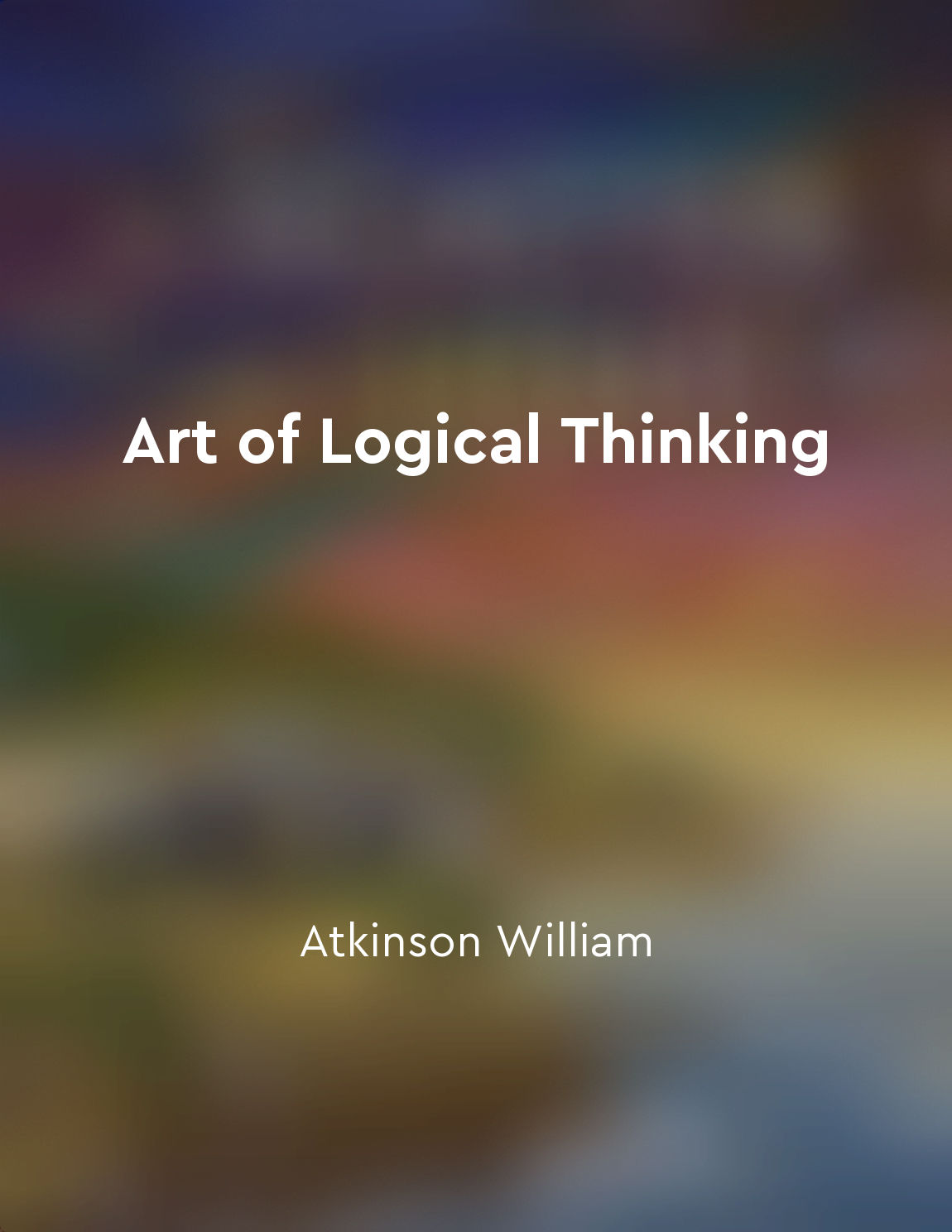Audio available in app
Inductive reasoning generalizes from evidence from "summary" of Art of Logical Thinking by Atkinson William
Inductive reasoning is a method of reasoning that involves moving from specific observations to broader generalizations. This type of reasoning relies on evidence to support its conclusions, rather than on strict logical principles. When using inductive reasoning, one starts with particular instances and then draws a general conclusion based on those instances. In other words, inductive reasoning generalizes from evidence. For example, if you observe that all the swans you have seen are white, you might use inductive reasoning to conclude that all swans are white. This conclusion is based on the evidence of your observations. However, it is important to note that inductive reasoning does not guarantee certainty. Just because all the swans you have seen are white doesn't mean that there aren't black swans out there somewhere. Inductive reasoning is a valuable tool for making predictions and forming hypotheses. By looking at patterns in specific observations, one can make educated guesses about broader trends or phenomena. This can be especially useful in scientific research, where observations can be used to form theories about how the world works. It is essential to remember that inductive reasoning is not foolproof. Just because something has been true in the past does not necessarily mean it will always be true in the future. The reliability of inductive reasoning depends on the quality and quantity of the evidence available. It is always possible for new evidence to come to light that disproves a previously drawn conclusion.- Inductive reasoning generalizes from evidence to form broader conclusions. By observing specific instances and looking for patterns, one can make educated guesses about larger trends or phenomena. However, it is important to recognize the limitations of inductive reasoning and to remain open to new evidence that may challenge previously drawn conclusions.


